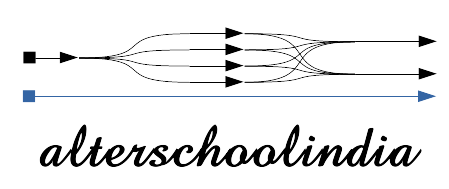In short,
Hindutva ("Hinduness"), a term popularised by Vinayak Damodar Savarkar in 1923, is the predominant form of Hindu nationalism in India. The Bharatiya Janata Party (BJP) adopted it as its official ideology in 1989. It is championed by the Hindu nationalist volunteer organisation Rashtriya Swayamsevak Sangh (RSS) and its affiliate organisations, notably the Vishva Hindu Parishad.
Many Indian social scientists have described the Hindutva movement as fascist, adhering to the concept of homogenised majority and cultural hegemony. Some Indian social scientists, as well as the Hindutva movement, dispute those descriptions.
On 2 January 2017, the Supreme Court of India declined to reconsider its 1995 judgment, which defined Hindutva as "a way of life and not a religion".
- Hindutva, Wikipedia as on 25th December 2017
The word "Hindu", throughout history, had been used as an inclusive description which lacked a definition and was used to refer to the native traditions and people of India. It was only in the late eighteenth century that the word "Hindu" came to be used extensively with religious connotation, while still being used as a synecdoche describing the indigenuous traditions.
Hindu nationalism has been collectively referred to as the expressions of social and political thought, based on the native spiritual and cultural traditions of the Indian subcontinent.
The coinage of the term "Hindutva" was an attempt by Vinayak Damodar Savarkar, who was an atheist and a rationalist, to de-link it from any religious connotations that had become attached to it. He defined the word Hindu as: "He who considers India as both his Fatherland and Holyland". He thus defined Hindutva ("Hindu-ness") or Hindu as different from Hinduism. This definition kept the Abrahamic religions (Judaism, Christianity and Islam) outside its ambit and considered only native religious denominations as Hindu.
M. S. Golwalkar, the second head of the Rashtriya Swayamsevak Sangh (RSS), was to further this non-religious, territorial loyalty based definition of "Hindu" in his book Bunch of Thoughts.
While emphasising on religious pluralism, Golwalkar believed that Semitic monotheism and exclusivism (characteristics of Islam and Christianity, in his opinion) were incompatible with and against the native Hindu culture. He further would echo the views of Savarkar on territorial loyalty, but with a degree of inclusiveness, when he wrote "So, all that is expected of our Muslim and Christian co-citizens is the shedding of the notions of their being 'religious minorities' as also their foreign mental complexion and merging themselves in the common national stream of this soil."
- extracted from Hindu Nationalism, Wikipedia as on 14th January 2018
It is unclear whether or not there is any difference between Hindutva or Hindu nationalism. These terms are usually used synonymously at several places.
It should be noted that in the past decades, the meaning of the terms Hindutva and Hindutva nationalism has not remained the same as given by Savarkar, and today, it can mean the exclusion of non-Hindu Indians. This can be a controversial topic for discussion in public. Be wary of it.


 Got any questions?
Got any questions?